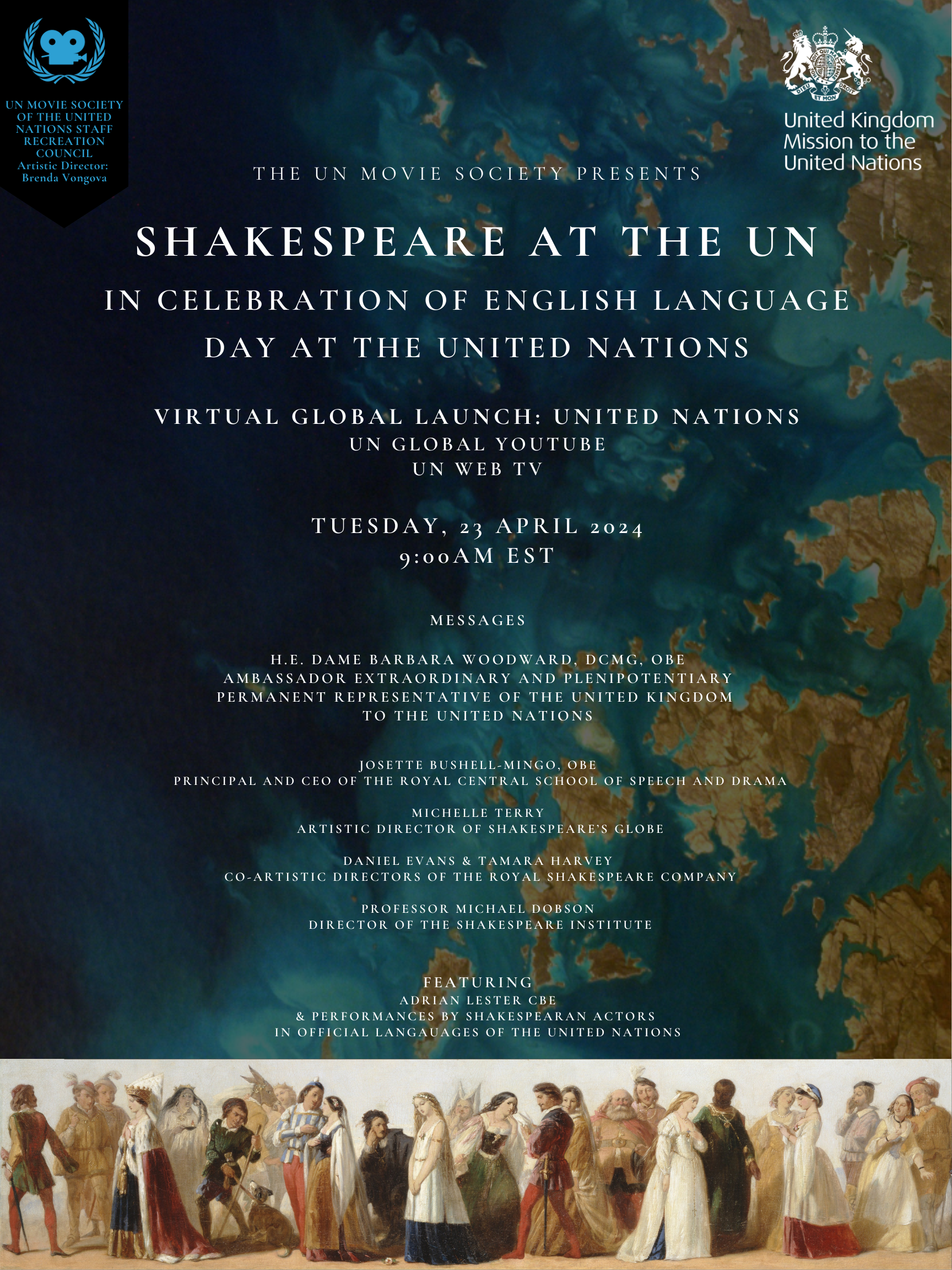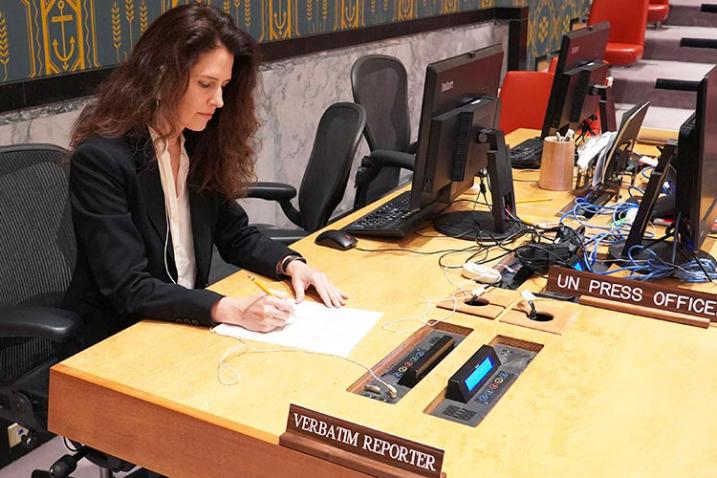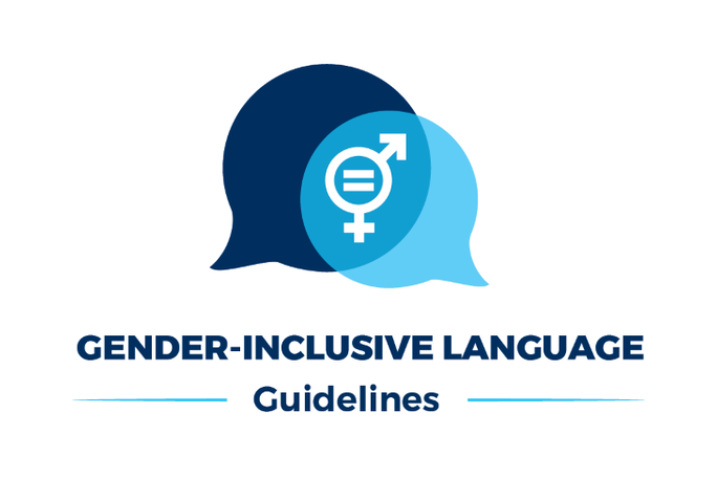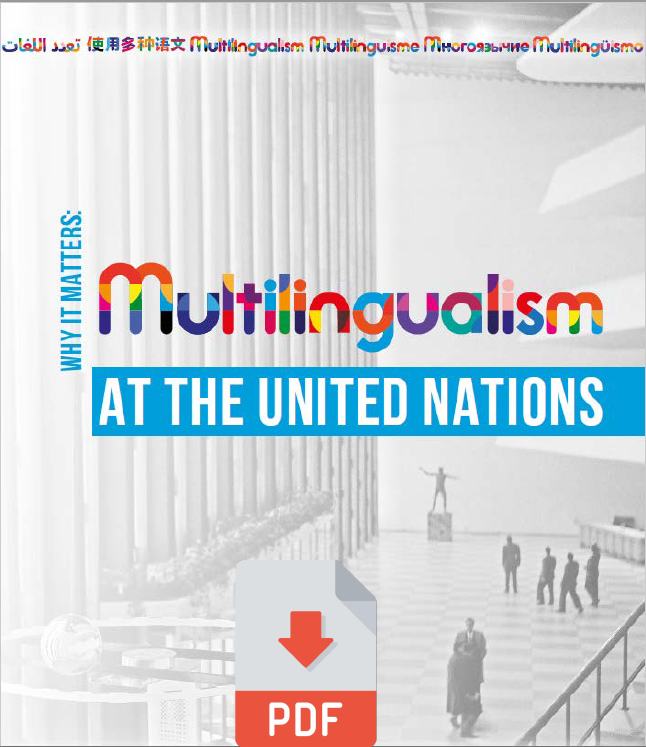Hari Bahasa di PBB
Hari Bahasa Inggris adalah hasil dari inisiatif tahun 2010 oleh Departemen Komunikasi Global PBB, yang menetapkan hari bahasa untuk setiap enam bahasa resmi organisasi. Tujuan dari hari bahasa PBB adalah untuk merayakan multibahasa dan keberagaman budaya, dan mempromosikan kesetaraan penggunaan dari semua enam bahasa resmi di seluruh organisasi.
Melalui inisiatif ini, kantor-kantor perwakilan PBB di seluruh dunia merayakan enam hari berbeda, setiapnya didedikasikan untuk satu dari enam bahasa resmi organisasi. Dengan tujuan meningkatkan kesadaran dan hormat untuk sejarah, budaya dan pencapaian setiap bahasa resmi kerja diantara komunitas PBB, Hari Bahasa di PBB bertujuan untuk menghibur, beserta menginformasi.
Enam Hari Bahasa:
| 20 Maret bahasa Perancis |
20 April bahasa China |
23 April bahasa Inggris |
| 23 April bahasa Spanyol |
6 June bahasa Rusia |
18 December bahasa Arab |
Multibahasa dan PBB
Sebagai faktor penting dalam mengaharmonisasikan komunikasi bagi masyarakat, multibahasa adalah hal yang sangat penting bagi Perserikatan Bangsa-Bangsa. Dengan mempromosikan toleransi, multibahasa memastikan partisipasi yang efektif dan peningkatan semua orang dalam pekerjaan organisasi, beserta efektivitas yang lebih baik, hasil yang lebih baik, dan lebih banyak keterlibatan.
Keseimbagan antara enam bahasa resmi telah menjadi perhatian Sekretaris Jendral. Dari tahun 1946 hingga sekarang, banyak aktivis yang telah
An essential factor in harmonious communication among peoples, multilingualism is of particular importance to the United Nations. By promoting tolerance, multilingualism ensures effective and increased participation of all in the Organization’s work, as well as greater effectiveness, better outcomes and more involvement.
The balance among the six official languages has been an ongoing concern of the Secretary-General. From 1946 to the present, numerous activities have been undertaken to promote the use of the official languages, and to ensure that the United Nations, its goals and actions, are understood by the widest possible public.
In its resolution of 6 December 1999 (A/RES/54/64), the General Assembly invited the appointment of a senior Secretariat official to serve as coordinator of questions relating to multilingualism.
Multilingualism is a Core Value of the United Nations - UN Secretary-General António Guterres
Multilingualism and the United Nations - One world, many languages
Work with Us
UN language staff come from all over the globe and make up a uniquely diverse multilingual community. What unites them is the pursuit of excellence in their respective areas, the excitement of being at the forefront of international affairs and the desire to contribute to the realization of the purposes of the United Nations, as outlined in the Charter, by facilitating communication and decision-making. They include Production editors, Editors, Interpreters, Translators, Verbatim Reporters, Editorial and Desktop Publishing Assistants, and Language Reference Assistants. Visit our YouTube channel and our careers page.
Gender-inclusive language
Given the key role that language plays in shaping cultural and social attitudes, using gender-inclusive language is a powerful way to promote gender equality and eradicate gender bias. Being inclusive from a gender language perspective means speaking and writing in a way that does not discriminate against a particular sex, social gender or gender identity, and does not perpetuate gender stereotypes. These Guidelines include recommendations and materials, created to help United Nations staff use gender-inclusive language in any type of communication — oral or written, formal or informal — and are a useful starting point for anyone.
Why do we mark International Days?
International days and weeks are occasions to educate the public on issues of concern, to mobilize political will and resources to address global problems, and to celebrate and reinforce achievements of humanity. The existence of international days predates the establishment of the United Nations, but the UN has embraced them as a powerful advocacy tool. We also mark other UN observances.
Test your knowledge
Adobe Express/AI generated illustration
Test your knowledge of the English language!
UN English Language Programme
The English Language Programme (ELP) offers regular core English courses (levels one through eight), which are designed to improve general English language proficiency, as well as communication courses and special courses to meet both the work-related needs and cultural interests of members of the United Nations community.
Multilingualism at the UN: Why it matters
English Language Day at the UN (UNIFIL 2023)
Resources
- Coordination of multilingualism
- United Nations Editorial Manual
- United Nations Multilingual Terminology Database (UNTERM)
- Competitive examinations for language professionals
- Language Learning at the UN
- Online language learning at the UN
- Language proficiency examination
- Dag Hammarskjöld Library
- UNOG Library Research Guide on Multilingualism
- UN Digital Library
- UN Social Media accounts
#EnglishLanguageDay
Bagian dari artikel ini telah dipublikasikan sebelumnya di situs Perserikatan Bangsa-Bangsa melalui tautan ini https://www.un.org/en/observances/english-language-day










